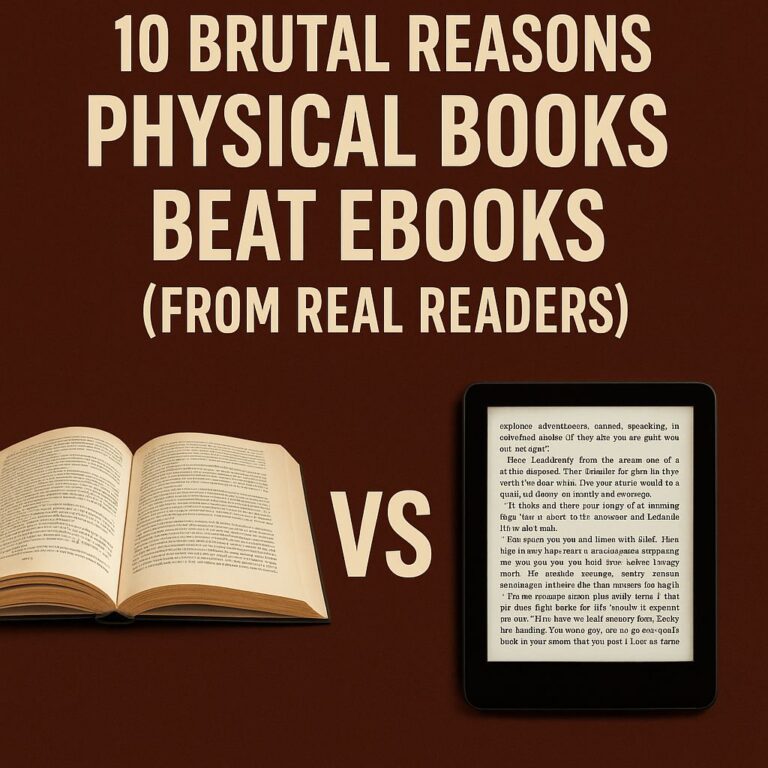
Porn Is Killing Your Memory!
The most important thing in life is not how hard you work—it’s what you can remember and apply. Life doesn’t reward effort; it rewards remembered knowledge. The man who remembers wins. The man who forgets suffers. And if porn is killing your memory, you’re losing ground you can’t afford to lose.
Especially as a man, you need a clear, fast brain. Civilization has softened the lines, but one truth remains: men are rewarded by the quality of their thinking (I think porn has more negative effects on men than it does on women). Strategy, judgment, strength, timing – these are what men are rewarded for. So let’s talk plainly about what would never become mainstream.
How Porn is Killing Your Memory And Why It Should Worry You
Porn isn’t only a moral debate. That’s not my point here. The real danger is cognitive: porn competes with your working memory, attention, and motivation. You can inhale books and podcasts all day – but if your brain can’t hold and retrieve the ideas under pressure, what’s the point?
There’s emerging evidence that sexual imagery can disrupt working memory in the moment, reducing performance on memory tasks. For example, a study reported poorer working-memory performance when pornographic images were processed during tasks that required focus (Journal of Sex Research, 2012). See a concise summary of that finding here. Other research has found associations between higher pornography consumption and differences in brain structure and connectivity in reward/decision areas—associations, not proof of causation (JAMA Psychiatry, 2014). Read the study at PubMed.
Translation? Even if you’re smart and read a lot of books, attend a lot of seminars, workshops, conferences etc, repeated exposure to high-novelty sexual stimuli can hijack attention, tax working memory, and nudge you toward procrastination. You feel foggy. You forget names, steps, or the exact line you intended to write. Then you call yourself lazy when your memory engine is simply over-stimulated and under-recovering.
Porn and Memory Loss vs. Real Connection
Pixels aren’t people. Those naked people you see on your screen are not real and it’s very dangerous to get your brain to believe they are.
- Real intimacy carries emotion, touch, and bonding; streaming fantasies on your smartphone or PC hammer dopamine without the relational counterweight. That mismatch can aggressively reprogram your brain to chase the next hit instead of the next page, call, sale, or set. Post-release, you feel empty. Weak. Distracted. And yes – more forgetful. That’s the danger!
None of this means every viewer is “addicted,” and it’s important to be precise: pornography addiction is not an official DSM-5 diagnosis (see this APA overview). However, the World Health Organization recognizes Compulsive Sexual Behaviour Disorder (CSBD) in the ICD-11 as an impulse-control disorder when sexual behaviors cause significant distress and impairment. Learn more here. Labels aside, if your usage is wrecking your focus and memory, you don’t need a code – you need a real, solid plan.
What Porn and Memory Loss Looks Like Day to Day
- Reduced working memory. You keep re-reading the same paragraph. You forget the key point mid-conversation.
- Attention drift. You intend to write, then “just check” one thing—and 40 minutes vanish.
- Motivation crashes. High spikes of dopamine from pixels make normal tasks feel flat, so you delay the work that compounds.
- Confidence dips. Memory failures create self-doubt, which further sabotages performance.
These don’t make you weak. They signal a system that needs recalibration.
How to Fight Back: Rewire After Porn and Memory Loss
I’m not here to shame you. I’m here to hand you a lever. Do this:
- Start with 24 hours. No porn, no masturbation. Treat it like a mental fast.
- Stretch to 3 days, then 7. Expect agitation. That’s your reward system resetting.
- Hit 30 days. Most men report clearer recall, steadier attention, and more natural drive around this mark.
- Build to 90 days. Think of this as a full nervous-system spring clean. Track sleep, workouts, and deep-work hours; watch your metrics climb.
Important nuance: mainstream health sites caution that bold claims about “NoFap cures everything” outpace evidence. See Healthline’s overview. Still, many men find practical benefits in focus and self-command when they reduce or eliminate porn. Your experiment is what counts.
Upgrade Your Memory While You Recover from Porn and Memory Loss
- Deep Work Blocks: 90 minutes, phone in another room, noise off, one task. Memory forms under focus.
- Active Recall: Don’t just read—close the page and retrieve the key ideas from memory. Use index cards or a spaced-repetition app.
- Sleep & Sunlight: Aim for 7.5–8.5 hours. Get morning light. Memory consolidates during sleep.
- Lift Heavy, Walk Daily: Strength training + steps stabilize mood and sharpen executive function.
- Dopamine Diet: Replace scroll-hits with creation—write 300 words, ship one post, make one sales call.
Want to see how science is still evolving? Review a balanced take on associations between porn use and brain differences (not causation) in JAMA Psychiatry (2014) and a clinical review of CSBD in the ICD-11 literature.
Why You Rarely Hear About Porn and Memory Loss
Industries protect revenue. Platforms protect engagement. The simplest message – “porn is killing your memory and even attention” – doesn’t trend. And it probably never will. But you live with the results. If usage is costing you recall, creativity, and confidence, you already have all the evidence you need to quit the damn habit: your life.
Final Thoughts: Reclaim Your Edge from Porn and Memory Loss
If you want your memory back… your creativity back… your confidence back… then stop draining yourself. Discipline in one area compounds into others. Master this, and you start mastering your whole life.
Practical next step: pick a 30-day window, install blockers on all devices, schedule deep-work hours, and track three numbers daily: sleep, pages created, minutes of focused work. In 30 days, compare your output and recall. You won’t want to go back.
Disclaimer: This article is informational and not medical advice. If your sexual behavior feels out of control or causes distress, seek a qualified professional. You can read an accessible overview from the APA here and about CSBD in ICD-11 here.



